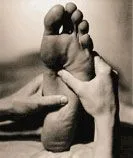Would you benefit from a Peripheral Artery Disease (PAD) Test?
These questions will help you decide:
- Do you experience leg pain when you climb stairs or take a walk?
- Is the pain relieved by rest, only to return when you walk again?
- Do you have numbness or tingling in your arms or legs?
- Do you have a non-healing sore on your foot?
- Do you have cooling of the skin in specific areas of the legs or feet?
- Do you have color changes in the skin, particularly in the arms or legs?
If you answered “yes” to any of these questions, ask your doctor about a test that may help you determine the location and significance of any vascular problems, often long before the condition manifests itself otherwise.
What This Doctor Can Tell You About Vascular Disease Can Save Your Life.
Arteries carry blood from the heart to all areas of the body and, when healthy, have a smooth lining that promotes blood clots. Peripheral arterial disease (PAD) is a condition in which fatty deposits (called plaque) build up along the walls of the arteries that carry blood to the arms and legs. This is also known as atherosclerosis or hardening of the arteries. The arteries slowly narrow and may even become blocked, affecting blood circulation, especially in the legs and feet.
The buildup of plaque in arteries that occurs in PAD can often be stopped or even reversed. People with PAD should quit smoking, exercise regularly, and eat a healthy diet low in fat and salt. In more serious cases, medication, surgery, or both may be necessary to treat PAD. Your doctor can test PAD and recommend the best treatment.

